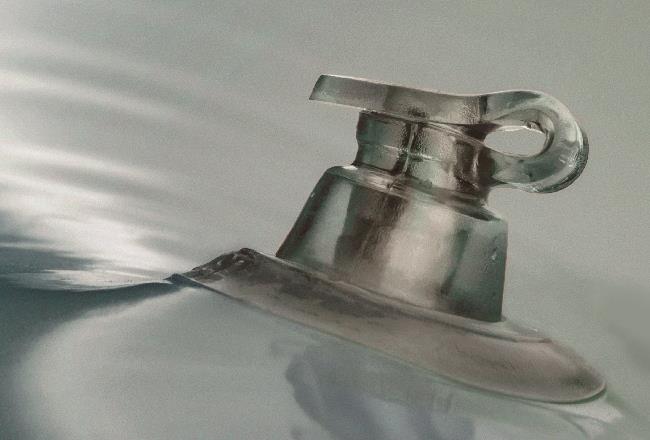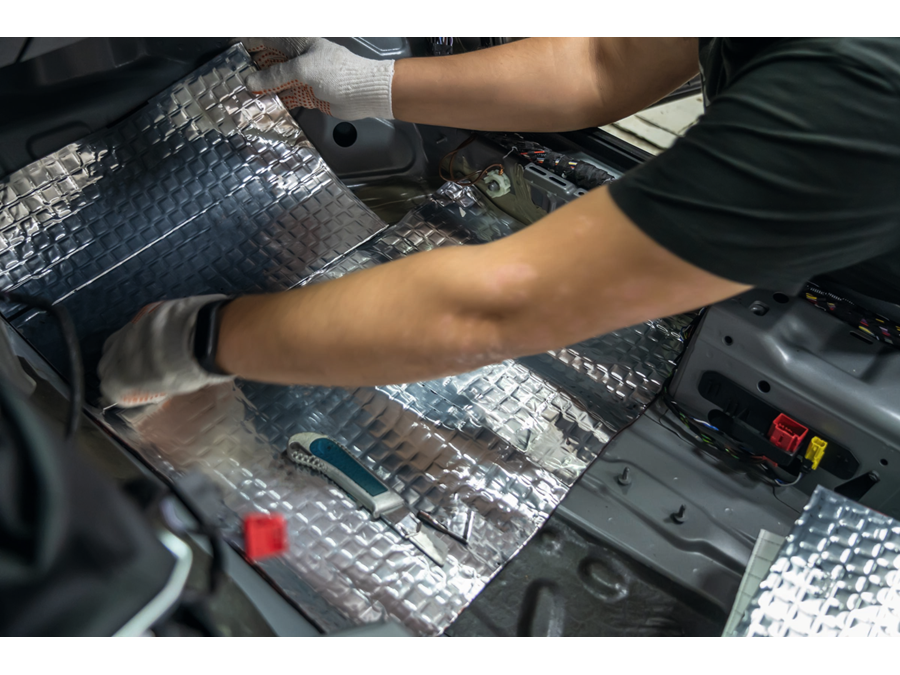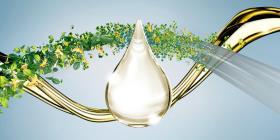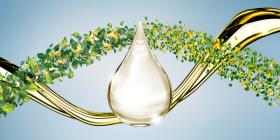
Partly bio-based Platilon® H2 CQ EC for more sustainable lamination bonding
Activated by heat: hot melt processing for high-performance textiles and components
In hot melt processing, the glue on an adhesive film is activated by heat, bonding it to a substrate of fabric, textile, metal or other material. Hot melt laminating has many market applications, from special lamination on clothing and functional textiles to protective layers on automotive seating, footwear and sports equipment.
Depending on the bonding system technology, the heat activation of the glue may be triggered by hot air, a heat impulse, or high-frequency welding. In any case, the cooling and solidification of the adhesive glue takes just seconds, so the bonded laminate product can be handled almost immediately.
Partly bio-based raw materials for a more sustainable hot melt film: Platilon® H2 CQ EC
For manufacturers who are looking for hot melt films that deliver industrial bonding with high performance in combination with sustainability, our partly bio-based Platilon® H2 CQ EC meets their requirements.
This more sustainable film grade incorporates a co-polymer with 35-39% bio-based carbon content according to ASTM D6866 methodology, which is based on the film composition and the information provided by the supplier.
The actual source material is castor oil. Processed to a polymer, it delivers a renewable and more sustainable material solution. The EC suffix on the film grade denotes that the product has a significant share of bio-based raw material, and the CQ label denotes circular intelligence.
More sustainability and high performance with Platilon® H2 CQ EC film
Hotmelt films are popular, easy-to-handle materials for industrial bonding applications. Our Platilon® H2 CQ EC incorporates bio-based castor oil as a raw material, enabling a more sustainable co-polymer that delivers the same versatility and formability as standard hot melt film grades.
Partly bio-based Platilon® H2 CQ EC: flexibility in processing technology
Platilon® H2 CQ EC is well suited to multiple processing technologies, from hot calender roll processing to flatbed lamination, heat sealing, hot pressing and high frequency, ultrasonic or impulse welding of e.g. PVC valves to TPU.
Component manufacturers can count on this partially bio-based hot melt film for easy handling and the same high heat resistance as standard grades, contributing directly to a more circular and sustainable economy.
Downloads
-
Partly biobased adhesive film | Platilon® H2 CQ EC
-
TPU Hotmelt Adhesive Films | Bayfol® Platilon®
-
TPU hot melt adhesive films- only USA | Bayfol®, Platilon®
Key Benefits
- Partially bio-based: Renewable castor oil in Platilon® H2 CQ EC enables a more circular economy.
- Strong bonding: Platilon® forms a strong, quick, seamless bond with textiles, metal and glass.
- High temperature: Film remains stable at up to 110°C; but with a low lamination temperature.
- Easy processing: More sustainable hot melt films stand up to fast, automated machine production.
- Barrier properties: Platilon® H2 CQ EC prevents some plasticizers from migrating, and is waterproof.


















